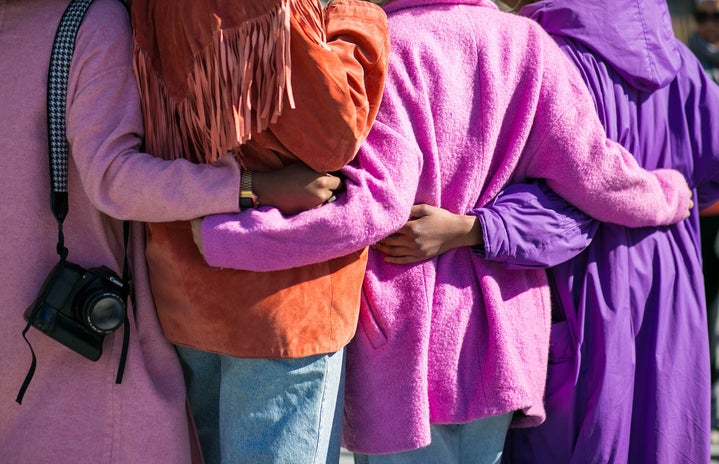When I was younger I despised the color pink. Although it was merely a color, I hated the feminine connotation that was associated with it. I thought I was cooler than the other girls in my class for saying that my favorite color was blue, which culturally is a more masculine color. Looking back, it was ridiculous for me to care so deeply about something as trivial as colors; however, it is a prime example of how deeply ingrained misogyny is in our lives. I was just six years old and was already unconsciously shaming other girls. As I’ve gotten older, I realized that I still fall victim to internalized misogyny.
In essence, internalized misogyny is projecting sexist attitudes and beliefs onto other women and even yourself. Though it may not feel like it at the moment, by bringing down other girls and women, you are ultimately bringing down yourself. Even though society has become more progressive in recent years, sexist social norms have continued to be perpetuated. Beliefs that women are “emotional, manipulative, weak or unintelligent” still run rampant, and women themselves ultimately start to view it as true.
One recent trend that inspired me to dive deeper into internalized misogyny is the “I’m not like other girls” phenomenon. This mindset, which I have seen constantly on TikTok, are girls who think that they are different or better than other girls because they are uninterested in stereotypically feminine things. Although it may be easy to make fun of girls who think that they are superior for hating makeup or the color pink, it is a prime example of the effects internalized misogyny has on women and girls alike. Oftentimes, “I’m not like other girls” girls (I know that is a mouthful) think that straying away from femininity and possessing masculine traits make them cooler or more accepted by others. However, it shouldn’t be a bad thing to want to be like other girls and to embrace one’s femininity. By claiming that you are not like other girls, you are insinuating that other girls are not good enough.
Even though it is impossible to completely erase one’s internalized misogyny, it is important to recognize its existence. You don’t have to become the stereotypical girly girl (although there is nothing wrong with that); however, you should not judge those who choose to fully embrace their femininity.


